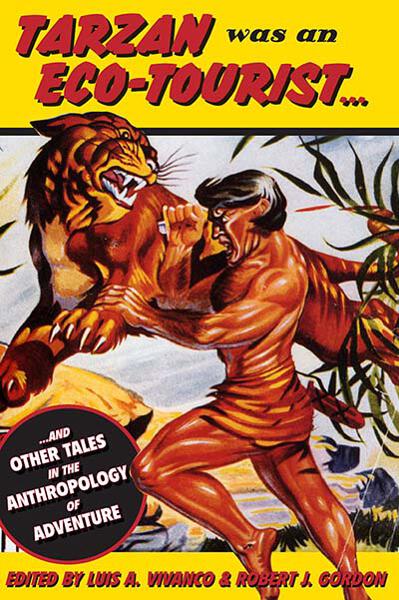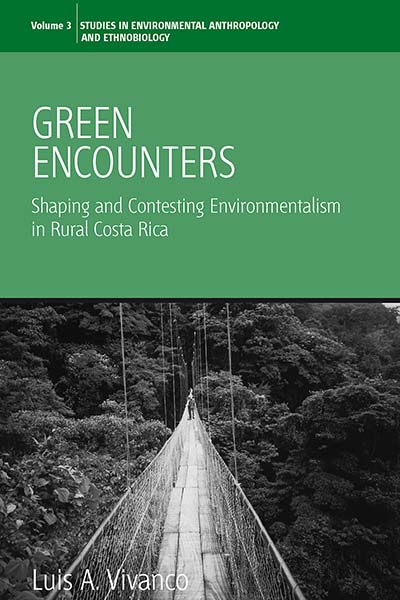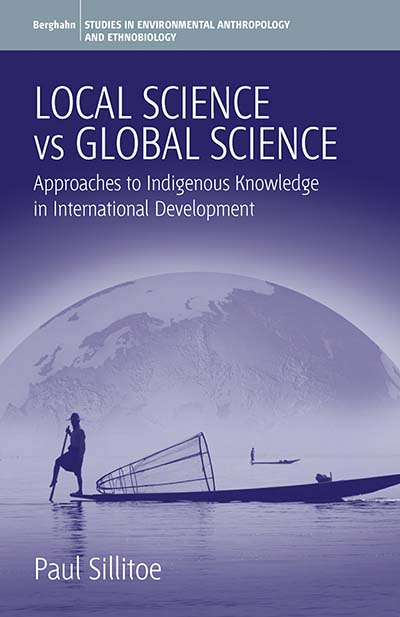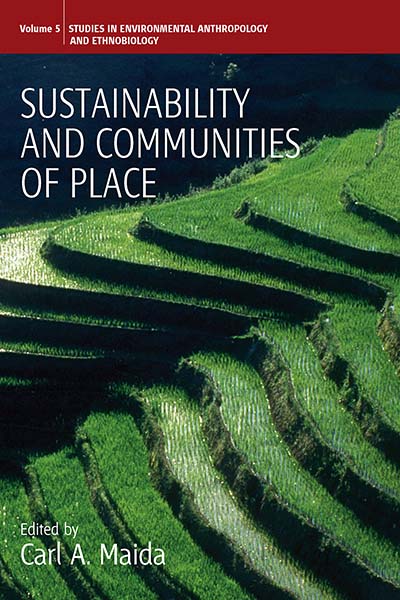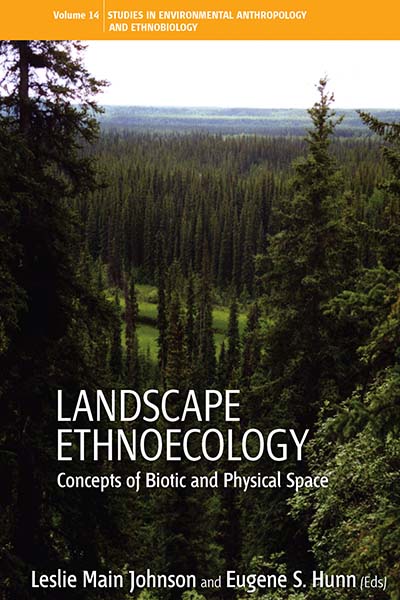
Series
Volume 9
Environmental Anthropology and Ethnobiology
Email Newsletters
Sign up for our email newsletters to get customized updates on new Berghahn publications.
Landscape Ethnoecology
Concepts of Biotic and Physical Space
Edited by Leslie Main Johnson and Eugene S. Hunn
332 pages, 26 tables, 35 figures, bibliog., index
ISBN 978-1-84545-613-9 $135.00/£104.00 / Hb / Published (February 2010)
ISBN 978-0-85745-632-8 $34.95/£27.95 / Pb / Published (March 2012)
eISBN 978-1-84545-804-1 eBook
Reviews
“Despite the diversity of approaches, the various papers are well structured, with numerous cross-references that make it possible to appreciate the general development of the subject… I found this book very interesting, although very specialised. It is particularly suited to an academic audience; in particular, ethnobotanists, anthropologists, and geographers. But, the book can be also appreciated by all those interested in the interaction between man and the environment.” · International Journal of Environmental Studies
“This edited collection gives an important and thought provoking overview of recent debates and work united under the rubric of cultural landscape research. The eleven substantive case studies, taken primarily from indigenous societies across North and South America, each provide a strong argument for questioning or better specifying definitions on the meaning of place for various societies…a suggestive collection that I would recommend highly.” · Anthropos
“[The editors] have brought together many of the most innovative thinkers and field workers to ponder how local communities make sense of the landscapes in which they live, and upon which they depend. This volume is rich with insights about how cultures perceive the spaces, landforms and habitats which nourish them.” · Gary Paul Nabhan, PhD., author, Singing the Turtles to Sea and Cultures of Habitat
“This landmark volume is bound to become a theoretical touchstone and wellspring for assessing the unity and diversity of human conceptualizations of landscape. It deftly combines a rigorous review of cross-cultural theories of landscape perception and classification with richly-detailed ethnographic examples of landscape ethnoecology.” · Thomas F. Thornton, School of Geography and Environment, University of Oxford
Description
Although anthropologists and cultural geographers have explored “place” in various senses, little cross-cultural examination of “kinds of place,” or ecotopes, has been presented from an ethno-ecological perspective. In this volume, indigenous and local understandings of landscape are investigated in order to better understand how human communities relate to their terrestrial and aquatic resources. The contributors go beyond the traditional ecological knowledge (TEK) literature and offer valuable insights on ecology and on land and resources management, emphasizing the perception of landscape above the level of species and their folk classification. Focusing on the ways traditional people perceive and manage land and biotic resources within diverse regional and cultural settings, the contributors address theoretical issues and present case studies from North America, Mexico, Amazonia, tropical Asia, Africa and Europe.
Leslie Main Johnson is Associate Professor in the Centre for Social Science, Athabasca University, Alberta, Canada. Her publications include Trails of Story, Traveller’s Path: Reflections on Ethnoecology and Landscape (Athabasca University Press, 2010), chapters on landscape in Landscape and Language, Benjamins 2011 and Ethnobiology, Wiley 2011," and articles in Human Ecology, Journal of Ethnobiology, Ecology of Food and Nutrition, Journal of Ethnobiology and Ethnomedicine, and Botany.
Eugene S. Hunn is Professor Emeritus in the Department of Anthropology at the University of Washington, Seattle. His books include Tzeltal Folk Zoology: The Classification of Discontinuities in Nature (Academic Press, 1977), Resource Managers: North American and Australian Hunter-Gatherers, co-edited with N. M. Williams (Westview, 1981), Nch’i-Wána, ‘The Big River’: Mid-Columbia Indians and their Land (University of Washington Press, 1990), and A Zapotec Natural History: Trees, Herbs, and Flowers, Birds, Beasts, and Bugs in the Life of San Juan Gbëë (University of Arizona Press, 2008).

